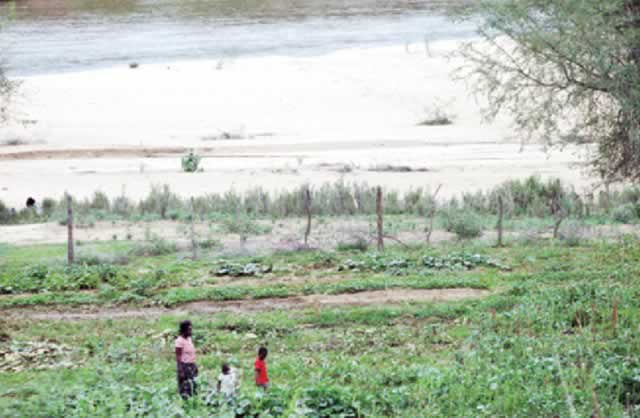In praise of the ancestors’ wisdom


During this time of the year, everything is green in the rural areas, and the rivers are also flowing
Dr Sekai Nzenza
She has never left Zimbabwe or crossed the border into South Africa like what most women traders do. Perhaps I had been a little unfair.
Sometimes this lack of sensitivity happens when you move between cultures, places and somehow, unconsciously, you think your knowledge is superior to that of others.
You only realise the value of other knowledge systems when you look back to the past.
Soon as we arrived in the village homestead, Piri took off her high heeled shoes, grabbed the wraparound cloth, took a basket and went straight to the fields to collect muboora, the pumpkin leaves for dinner. She had a certain way of picking the leaves. Then she picked the tender leaves of the beans, munyemba.
This time of the year, everything in the village is green, beautifully green. There are mangoes everywhere. On the ground, full of brown leaves, the millipede, that long black worm with many legs and ants are eating rotten mangoes. In the old days, this place was more fertile than it is now. We had varieties of vegetables including munyemba, bean, derere, okra, black jack, mhonja, muboora or pumpkin leaves.
This year, we did not grow tobacco like most people around here.
Instead, we grew sorghum, millet or mapfunde, zviyo, mhunga and all the other old crops that are drought resistant.
I walk through the fields and the millet and maize tower over my head. On the ground are various green and yellow pumpkins and water melons, lying around. This year, we will be full. It is like the old days.
Eating a big stringy mango, I sit on the bench outside the kitchen hut and watch the golden sun slowly setting over the Homa hills. The sound of the cow bells, the little calves and goats going to their respective pens to settle for the night. It was good to be back home.
There was a time when this place was full of life, people, drums, dancing, music, food. Growing up here in those pre-independence days, we did not know where Salisbury was and we had never seen a traffic light or a television. I remember that in November, the rains came. We sang songs to thank the ancestors for giving us rain. Down the valley the frogs joined our praise.
Within weeks of the rain falling, the once dry countryside was green. Rivers flowed, taking away all the dry debris and dust to the Save River and over to the Indian Ocean. Our cows grew fatter. People shared and exchanged seedlings. At dawn, we ploughed the fields and sowed corn, sorghum and groundnuts. Strongmen went to plough the fields of widows.
The crops came up competing with the weeds. For weeks, we pulled the weeds out. We ate what we grew in the fields and celebrated many good harvests. We were poor, but we were not hungry. A certain kind of heat could tell you that the rains were near. Village activities were determined by the seasons.
Friday was a special rest day for us to remember and respect our Ancestors. Around Christmas time we rested our aching backs from weeding. After the New Year, harvest time began. The granaries were full. The beer was strong and intoxicating. The elders held ceremonies to thank our ancestors for good health and new births. In the dry season we went to the river and sat on the flat rocks while older women taught us about the mysteries of womanhood.
At full moon, we followed the sound of the drum and danced until dawn. Some nights Mbuya VaMandirowesa and other elders in the village told us stories about the time when animals could talk.
Each story had a lesson, a meaning and knowledge about life. They often used metaphors, proverbs, tsumo nezvirahwe, to entertain and teach. They said the world was different before the white man came. We had never seen white men.
Throughout he seasons and the activities, we learnt about the world around us and how to live like people, sevanhu vane hunhu. That knowledge did not come from a book. It had nothing to do with knowing how to read a map. It was the wisdom of the ancestors, passed on from one generation to the other. Mbuya VaMandirowesa, did not read. I never saw her holding a book, not even a Bible. In fact, she did not believe in the Bible at all, nor did she ever set foot in a classroom.
The village brings back all these memories.
“Instead of sitting there, doing nothing, why don’t you slaughter the chicken while I make the fire?” Piri asked, waking me up from my memories. Me? Slaughter a chicken? I no longer have any confidence in killing anything. Piri hissed under her breath, grabbed the chicken and stomped away to kill it.
Within a couple of hours, we were feasting on it together with my brother Sidney, my friend Bhiya, Jemba and a couple of youths from the village. After the meal, there was still a lot more to eat. Pumpkins, roast corn, peanuts, round nuts and mangoes. It was like the old days once again. The whole kitchen hut was full of stories, laughter and even songs and dances. As long as it rains, and people can afford to buy fertiliser and seeds, the donor food handouts are not needed here.
“When you go to Australia, do you pass through London?” Piri asked looking at everyone, searching for answers.
Why was she bringing this up again? I thought we had exhausted that question and I had secretly regretted my attitude. Everyone laughed with some embarrassment. Bhiya replied that such a question was of no use to any one, so why does Piri not just pass the beer.
“Hazvina nebasa rese izvozvo. Tisvitse doro,” Bhiya said. At this point, my brother Sidney, the school teacher, jumped at the opportunity to teach. He quickly started reciting the countries and the cities of the world. We listened for a while. Then he went on to the great rivers of the world. “There is the river Sine, Thames, Danube, Mississippi, the Nile, the Zambezi, the Limpopo and the Murray Darling River and many others in China and India.
“Now you need to match each river to a country,” he said.
Piri said that was enough knowledge of rivers and cities. “Some knowledge is good for some places. Then some knowledge is of no use. This sister of mine here,” Piri kicked my foot and continued. “This sister of mine here tested my knowledge about maps on the way here. I have not seen a map since I was in Grade Seven. Once we got here, she sat there like a madam, waiting for us to run around cooking for her. It’s not that she is lazy. No. She has deliberately forgotten how to pick munyemba from the fields or cook derere.
“Like a whole lot of urban people, they value only the knowledge they get from books and television.
“All knowledge is valuable. It needs to be balanced and sieved. Keep what is valuable and discard what you do not need.” Kupepeta ruzivo.
In the morning, Piri woke up with a bad stomach ache. Not surprising. If you eat everything including pumpkins and mangoes on top of beer, something is bound to give. We walked to the hills in search of herbs for her stomach. We found a mutsvanzwa tree with its bright green and ripe red berries. We used to eat the ripe red ones and this is the season for it. Piri picked the tender leaves of the mutsvanzva, chewed the leaves, swallowed the bitter juice and spit the rest out. I did the same and remembered the taste. Mutsvanzva does wonders to stomach ailments or indigestion. With her little hoe, Piri dug roots from one bush and said it was good for tightening the women’s reproductive muscles and then she found another plant which she said was good for expanding the passage way before child birth, mushonga wema suwo. She showed me many other plants and explained their therapeutic use. Piri, like many people who grew up in the village, has kept so much knowledge of the past. If only we could capture and store it alongside the new knowledge systems of the present.
Dr Sekai Nzenza is the Chief Executive Officer of RioZim Foundation.










Comments